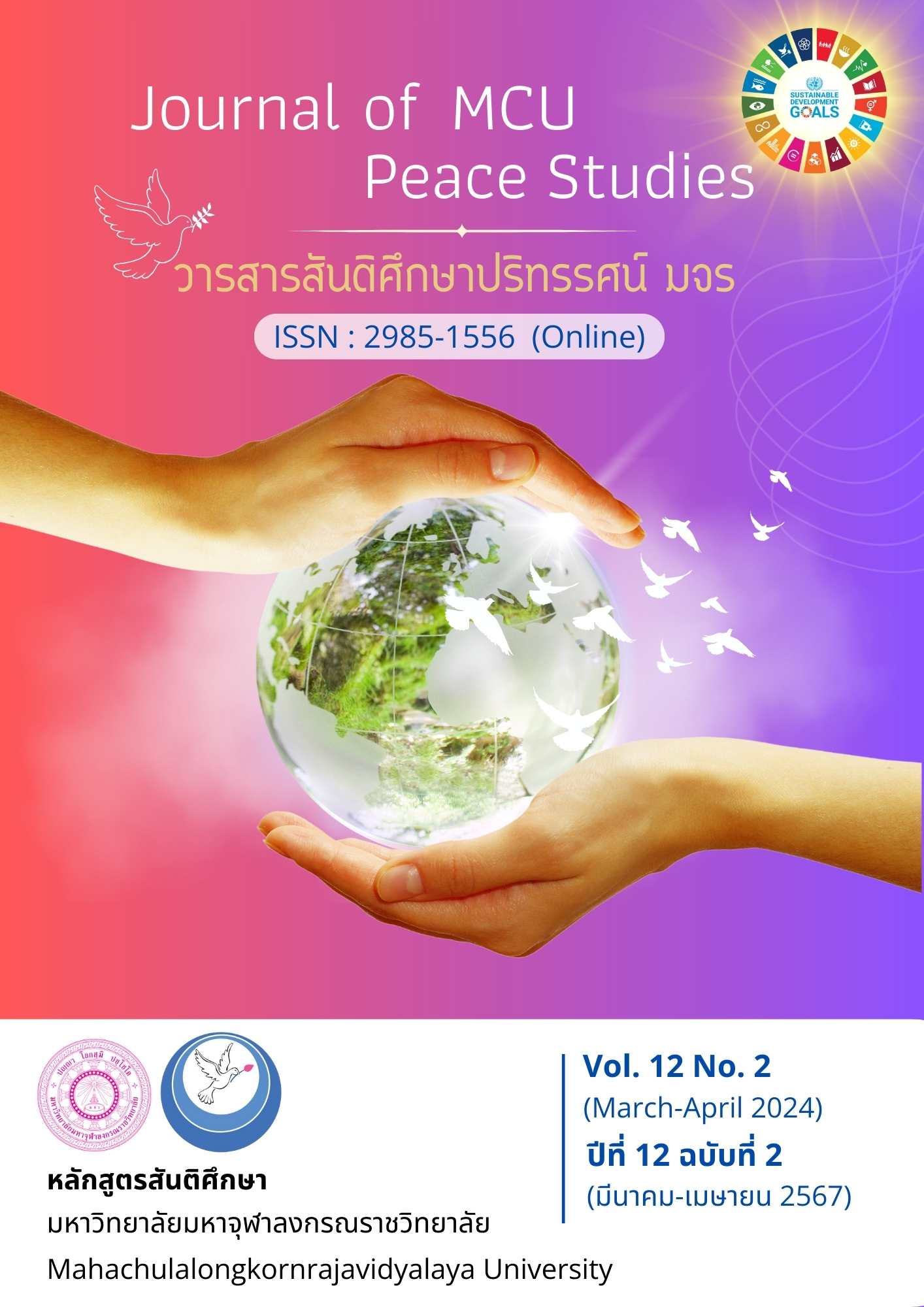The Kuomintang Chinese Community in Dynamic Ethnic Relations on Doi Mae Salong
Main Article Content
Abstract
The research article consisted of the following objectives: 1) to analyze the establishment of social network of the Kuomintang Chinese; and 2) to analyze the capital accumulation of the Kuomintang Chinese in Santi Kiri village. The study used a qualitative research approach with 45 key informants, 30 Kuomintang Chinese and 15 Akha people selected through purposive sampling. Data were collected using an interview form provided by the Chinese Yunnan Kuomintang on Doi Mae Salong. The data gathered from the interview were evaluated.
From the study, the following results were found: 1) The Kuomintang Chinese formed their social network under the Thai government, with assistance from Taiwan and China, resulting in capital accumulation for each generation of Kuomintang Chinese. The process of establishing this ethnic group has progressed from refugee status to legal Thai nationality. The social networks of the Kuomintang Chinese were built in three generations: (1) The first generation emphasized group solidarity; (2) The second generation built an external social network that included Taiwan, Thailand, and China. There was a transformation of social and cultural capital into economic capital, and interactions between ethnic groups took place; and (3) Socialization was undertaken in order to integrate into Thai society while forming a new ethnic identity, 2) The analysis of capital accumulation and capital utilisation revealed three forms of social capital accumulation: cultural capital, economic capital and social capital. The first generation accumulated capital in the form of land, developed agriculture, but did not convert social networks into economic capital. The second generation, in which Taiwan provided support in education, agriculture and tourism, led to increased capital accumulation and relations with the Akha group, which in turn led to more social network and tourism promotion, a shift from cultural capital to economic capital, and the promotion of economic development. And finally, the third generation, in which many of them moved to the big cities to get an education and advance professionally, where they could accumulate more capital than in Doi Mae Salong.
Article Details

This work is licensed under a Creative Commons Attribution-NonCommercial-NoDerivatives 4.0 International License.
Views and opinions expressed in the articles published by The Journal of MCU Peace Studies, are of responsibility by such authors but not the editors and do not necessarily reflect those of the editors.
References
Auansakul, Pannee. (1995). Chinese Traders and Thai Groups in the Rice Business. Southeast Asian Journal of Social Science, 23(1), 29-42.
Bourdieu, P. (1977). Cultural Reproduction and Social Reproduction. New York: Oxford University Press.
Bourdieu, P. (1997). The Forms of Capital. New York: Oxford University Press.
Bo, yang. (1985). War Novel. Taipei: Xingguang.
Bunnag, R. (2016). Division 93 of the Mintang Kingdom Remained until It Took Root in Thailand.Retrieved February 15, 2024, from https://mgronline.com/onlinesection/detail/9590000003890
Chang, W-C. (2000). From War Refugees to Immigrants: The Case of the KMT Yunnanese Chinese in Northern Thailand. The International Migration Review, 35(4), 1086-1105.
Duan, Ying. (2008). Kuomintang Soldiers and their Descendants in Northern Thailand: An Ethnographic Study. Journal of Chinese Over-seas, 4(2), 238-257.
Hill, A. M. (1998). Merchants and Migrants: Ethnicity and Trade among Yun-nanese Chinese in Southeast Asia. New Haven: Yale University Southeast Asia Studies.
Highland Research and Development Institute, Mae Salong Royal Project. (2019) Population Economic and Social Information. Retrieved February 29, 2024, from https://web2012.hrdi.or.th/xtrp/basicinfo/social/595
Prakadwuttisan, K. (2003). Chinese Soldiers from the Kuomintang Nationalist Party Are Stranded in Northern Thailand. Chiang Mai: Siam Rattana Printing.
Roosens, Eugeen. (1989). Creating Ethnicity: The Process of Ethno-genesis. London: Sage Publications.
Taylor, R. H. (1973). Foreign and Domestic Consequences of the KMT Intervention in Burma, Ithaca. New York: Dept of Asian Studies, Cornell University.


